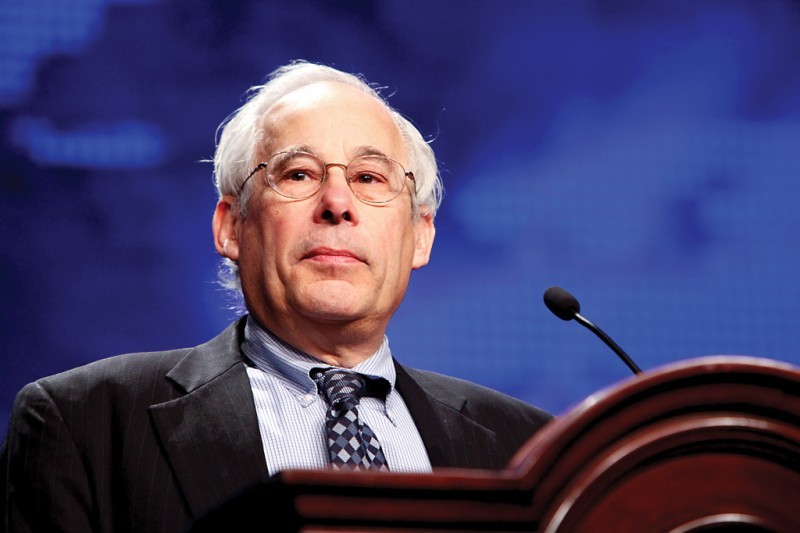Blue: Give Berwick a chance
Courtesy Photo: Michael Olliver/Flickr
Donald Berwick was appointed by the Obama administraion as administrator for the Center of Medicare and Medicaid Services on July 7, 2010. He was re-nominated by Obama on Jan. 26.
March 24, 2011
With widespread devastation in Japan, horrific bus crashes in the Northeast and the start of military operations in Libya, one story got lost: the tale of Donald Berwick.
Who the hell is Donald Berwick?
In the summer of 2010, when Congress was in a recess, the Obama administration appointed Berwick as administrator for the Center for Medicare and Medicaid Services. The appointment was controversial, given the already contentious environment surrounding the Patient Protection and Affordable Care Act, aka Obamacare. To top it off, conservative circles whispered that Berwick sought to bring the dreaded European model of health care to our yet unspoiled shores.
The move to appoint Berwick in a recess was smart on the part of congressional Democrats. They avoided his transformation into an election issue by avoiding the confirmation hearings. They had just come from a difficult and, at times, unpopular fight to pass the Affordable Care Act, and rather than stoke the flames, they waited.
And the Obama administration took up the gauntlet.
Berwick’s appointment was July 7 of 2010, and on Jan. 26 of 2011, Obama re-nominated Berwick to the position, owing to the fact that he’d not yet been confirmed. The recess appointment would allow Berwick to serve summer without an actual approval from Congress.
The 42 Senate Republicans got together March 3 to pen their letter to Obama, saying that “no senator — Democrat or Republican — was given the opportunity to ask Dr. Berwick a single question before he was placed in charge of an agency with a budget larger than the Department of Defense, which controls 4 percent of our nation’s gross domestic product [GDP], and, most importantly, directly impacts more than 100 million American lives every single day.”
Republicans weren’t the only ones sending letters concerning Berwick. Earlier this week Berwick’s supporters, including the American Academy of Pediatrics and the American College of Physicians, cast Berwick as a scapegoat between opposing parties in the congressional war over health care reform. They pointed to the respect given to him by peers and his many accomplishments as reasons to keep him on as CMS administrator.
Berwick is a controversial figure because of his past involvement with the “dreaded European model” mentioned earlier: the National Health Service, Britain’s central health care system. Some allege he grew fond of the NHS while serving on its Modernisation Plan Board, and given quotes such as, “I am romantic about the NHS; I love it,” I see that the controversy has some footing.
J. R. Dunn, author of “Death by Liberalism,” points out that the accidental hospital deaths under the NHS in Britain are 95,000 per year. He also said that the number is twice those in the U.S., and the number would balloon to 450,000 per year if we adjusted for our population.
That’s to say nothing of Britain’s National Institute for Health and Clinical Excellence, a government authority tasked with deciding which medicines Britain invests in and which are ignored.
That’s ultimately the fear propelling the debate: that such a choice, no matter how well intentioned, will be the wrong one. Many voters fear that kind of inability to control their own fates, and the uncertainty that surrounds Berwick as CMS administrator will only deepen with time.
The best course of action now is that Obama diverts his course and nominates Marilyn Tavenner, the CMS’s current deputy administrator. Come hell or high water, Berwick’s nomination will be blocked. And, as much of the ACA doesn’t kick in until 2014, we won’t know the full effect of the legislation framing the debate until then.
We Americans seem to cling to our beliefs the fiercest when we don’t know the details. So my biggest question is this: Why not let him sit through a hearing?
I’d love to hear his responses to questions from Republicans, and I’m sure they’d love to grill him. You can vote afterwards, but at least let the guy explain himself. The upshot? Obama gets to say his administration was transparent about it all.
What’s to lose?

















